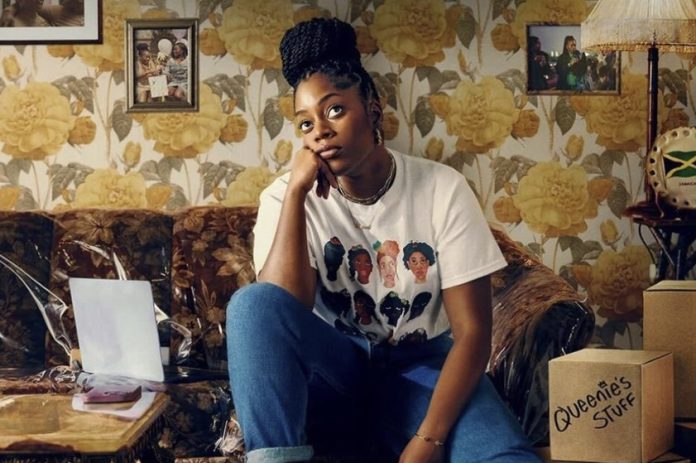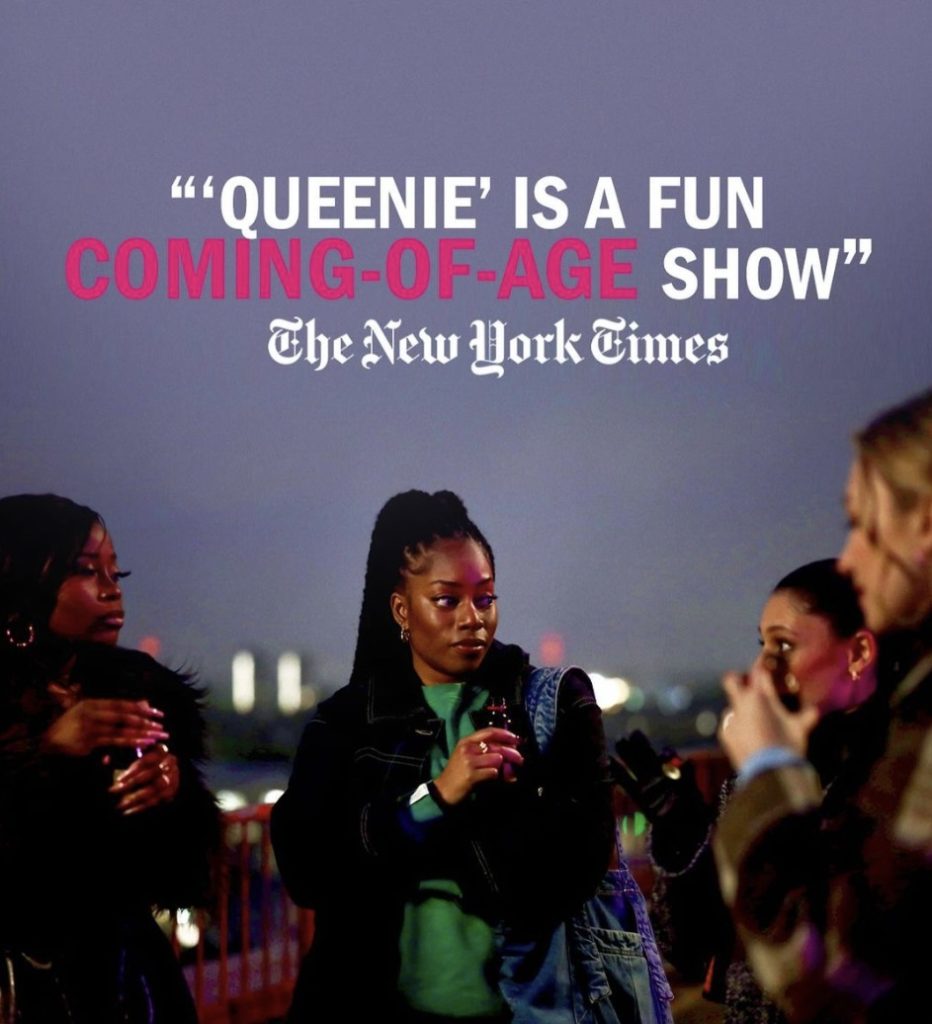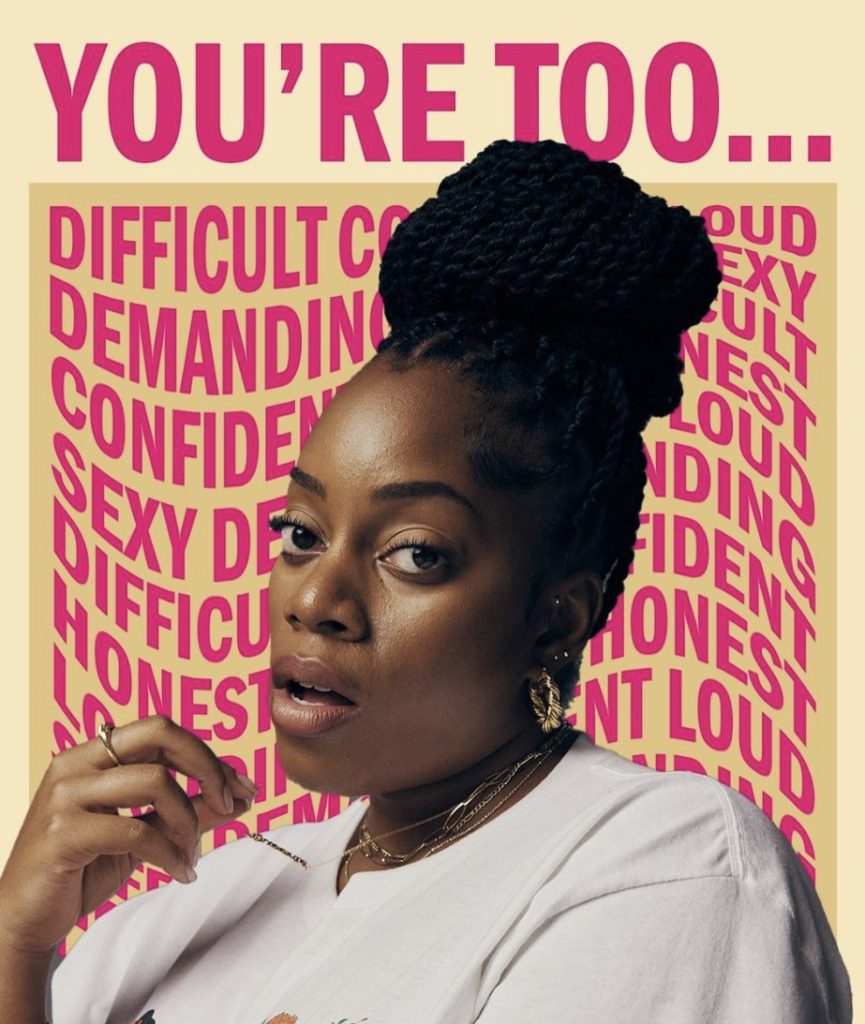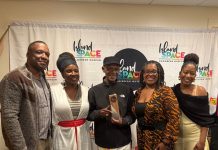
Hulu’s latest series, Queenie, has already started to capture the hearts of audiences around the world. Based on the critically acclaimed novel by Jamaican-British author Candice Carty-Williams, the show premiered on Hulu on June 7, 2024, and has quickly become a cultural touchstone for its poignant and authentic portrayal of a young Black Jamaican woman navigating life in London.
Queenie tells the story of Queenie Jenkins, a 25-year-old Jamaican-British woman who struggles with the complexities of her dual heritage while grappling with a series of personal and professional crises. The series delves into her life as she navigates a breakup, contends with her mental health, struggles with the past and confronts her identity. Queenie’s journey is a blend of humor and heartbreak, offering a raw and honest exploration of what it means to be a young Black woman today.
The show’s narrative, much like the novel, is a powerful commentary on race, culture, challenges, opportunities and the pressures faced by young women. The series also brings new layers to Queenie’s character and her experiences.
Rave Reviews
Since its release, Queenie has received rave reviews from both critics and viewers. Fans of the book have praised the show for staying true to the source material, while new audiences unfamiliar with its roots have been captivated by its relatable, raw and nuanced storytelling. The series has been praised for its unflinching look at issues such as mental health, systemic racism, sex, friendship, abuse, family issues, childhood trauma and the complexities of interracial relationships. On Rotten Tomatoes, Margaret Lyons, a Tomatometer-approved critic from New York Times, Entertainment Weekly, Time Out and New York Magazine/Vulture, relayed “It’s smart, poppy and fun — critical, but not cynical.”

On social media, viewers have expressed their appreciation for the show’s honest portrayal of a Jamaican-British woman’s life, highlighting the refreshing representation of Caribbean culture on a mainstream platform. Many have shared how deeply they resonate with Queenie’s struggles and triumphs, noting that the series has brought much-needed visibility to the experiences of Caribbean diaspora communities abroad, particularly in regards to mental health awareness. Variety’s review calls it a, “Brilliant Take on Navigating Your 20s While Birthing a Star in Lead Dionne Brown” while New York Times relayed, “‘Queenie’ Captures Black British Womanhood, in Its Mess and Glory.”
Critics have also commended the show’s cast, particularly its lead actress, Shaniqua Okwok, whose portrayal of Queenie is both powerful and vulnerable. Beyond her acting abilities, audiences are also thrilled to see a Jamaican woman, with Okwok having roots on her father’s side, authentically portraying a Jamaican character, and there’s a palpable sense of pride in the diaspora as a fellow Caribbean talent shines in the spotlight of this promising new series.
However, not everyone is convinced. Some critics believe the show has room for improvement. Paste Magazine notes that it “doesn’t quite reach the same emotional heights as the novel.” On Rotten Tomatoes, Hugo Rifkind of Times UK echoes this sentiment, describing it as “a vibe looking for a point” while Benji Wilson from the Daily Telegraph UK appreciates the depth of the character amid lackluster drama, stating, “As a character study, Queenie is first-rate. As a drama, you only wish it pushed things further.” With a confirmed second season expected to premiere within the next year or two, viewers are eagerly awaiting a deeper dive into Queenie’s journey and the show’s overarching themes of self-acceptance and personal growth.

Exploring Mental Health Through a Jamaican Lens
One of the standout elements of Queenie is its rich depiction of Jamaican culture. From the dialogue to the tradition of avoiding “outside clothes” on the bed, the lively family gatherings and the flavorful patois that Queenie and her family use, the series does not shy away from showcasing the intricacies and complexity of Jamaican life. Moreover, the show’s soundtrack is a tribute to Jamaican music, featuring a mix of reggae, dancehall and ska club music that underscores the narrative and adds an extra layer of authenticity to the story.
Queenie’s Jamaican identity is central to her story — her heritage shapes her worldview and her interactions with the world around her. The show also touches on themes of generational conflict and the immigrant experience, portraying the challenges faced by Queenie’s grandparents as they adapt to both life in the UK along with new, modern ways of living.
The nuanced views surrounding mental health are also a big part of the storyline, as Queenie struggles to deal with her past, in part because of her grandmother and aunt’s insistence that therapy is unnecessary for their family.
Rolling Stone describes it as “a story whose ultimate power sneaks up on you, because Carty-Williams is smart enough to recognize that the best way for us to understand Queenie is to be confronted by her trauma at the same time, and in the same way, that she is.”
This tension peaks in Episode 6, where the audience finally learns the backstory of Queenie’s childhood trauma surrounding her mother, and her therapy journey begins. The events that transpire from this, however, pave the way for a poignant scene between Queenie’s grandparents, where her grandfather, played by The Fresh Prince of Bel-Air butler and Saint Lucia native Joseph Marcell, suggests, “maybe we need to learn from this generation.” This, and subsequent scenes profoundly influencing the series’ final episodes.
This aspect of the series resonates deeply with many viewers from immigrant backgrounds, offering a mirror to their own experiences of straddling multiple cultures and generational expectations.






























